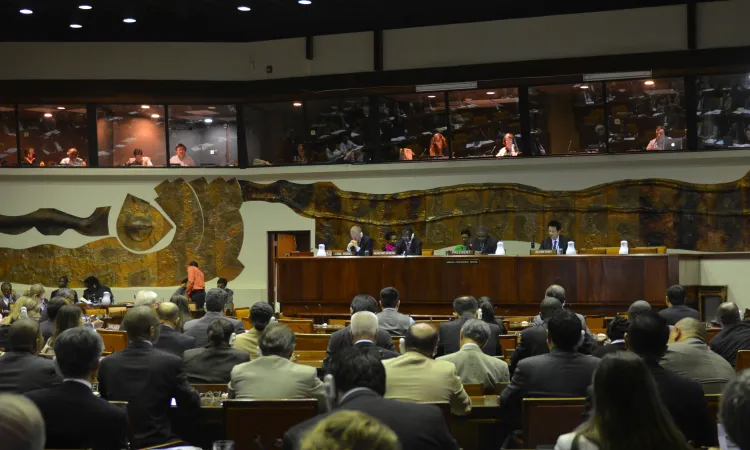News Flash
News Flash

UNITED NATIONS, United States, March 29, 2025 (BSS/AFP) - Governments and environmental activists expressed anger Friday after a Canadian undersea mining group announced plans to cut a deal with the United States to side-step a United Nations treaty.
Delegates to the International Seabed Authority (ISA) warned that the decision by The Metals Company (TMC) would violate international law and undermine joint management of the seabed.
But the firm argues the ISA was taking too long to set undersea mining rules and that North American industry needs seabed minerals to compete with China.
"I must express my deep concern," said ISA chief Leticia Carvalho.
Created by the UN Convention on the Law of the Sea (Unclos), the ISA was designed to protect the seabed in international waters and to regulate mining.
Debate over a global mining code has stretched for more than a decade, amid mounting calls to pause deep sea mining for fear of irreversible damage to the undersea environment.
- Nickel and cobalt -
The United States is not a member of the ISA nor of Unclos.
TMC, apparently exasperated by the ISA's failure to agree on rules to mine the Pacific seabed for nickel and cobalt, now plans to submit a request to President Donald Trump's administration via its American subsidiary.
This would perhaps fatally undermine the effort to confirm the ISA as sole regulator of mining under international waters -- and trigger a global free-for-all.
On the final day of the ISA conference in Jamaica, delegates of several countries including giant China and tiny Costa Rica lined up to declare their attachment to the multilateral system.
"This remains the only universally recognized, legitimate framework," Carvalho said.
"I remain firmly dedicated to the authority's mandate ensuring that activities in the area are conducted for the benefit of all humankind," she said.
International waters cover just over half of the world's seas and are a potentially lucrative source of minerals at a time of mounting resource competition on land.
Greenpeace slammed the Metals Company announcement as "a slap in the face to international cooperation."
TMC's subsidiary Nori is the first firm to want to exploit the international seabed at scale, seeking to excavate "nodules" of cobalt, manganese, nickel and copper.
ISA, however, is divided between powers seeking a code under which mining could proceed in a regulated fashion and others seeking a moratorium while environmental consequences are weighed.
The Canadian firm had hoped to apply for a permit in June, but after talks with Trump's White House has decided to apply instead to the US National Oceanic and Atmospheric Administration (NOAA), under a 1980 US law establishing rules for seabed exploitation.
Washington is engaged in a global race with powers like China to secure the minerals to needed for the world economy's digital transition.
The NOAA confirmed Friday that TMC's US subsidiary has requested a consultation on applying for a deep-sea mining license.
The agency said in a statement the process "ensures a thorough environmental impact review," with multiple steps before exploration or mining can begin.
According to TMC's CEO Gerard Barron, the firm has invested more than half a billion dollars over the past 10 years to "understand and responsibly develop" mining in the Pacific.
- 'Discord and chaos' -
"It's clear that American re-industrialization simply cannot depend on Chinese metal production," said chief finance officer Craig Shesky.
"Nodules are not some marginal solution, they can... solve US needs for several metals deemed critical by the US Geological Survey," he said.
Duncan Currie, legal advisor for the Deep Sea Conservation Coalition, said the bid for a US license appeared to be a "desperate attempt" to undermine the International Seabed Authority.
"A moratorium is needed to prevent this kind of international conflict, discord, and chaos," he said.